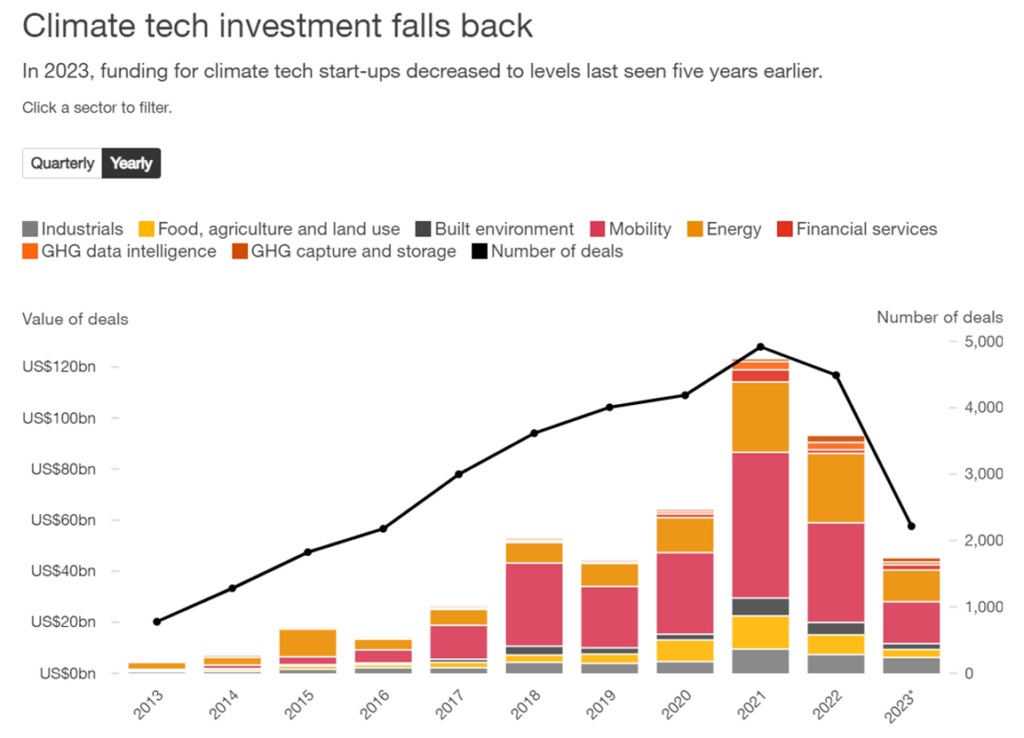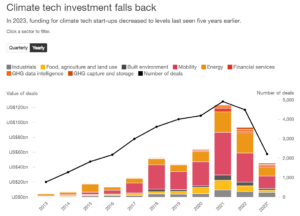Introduction
Our previous blog posts have covered broad themes resonating with the overall startup ecosystem. This time, we delve deeper into a specific vertical – Cleantech startups. Pakistan’s climate challenges, highlighted by the devastating floods in 2022, have underscored the need for innovation. The country aims to reduce carbon emissions by 50% from 2015 to 2030, with 15% from domestic resources and 35% from international financial support. Achieving this goal requires implementing climate mitigation and adaptation actions across sectors like energy, transportation, waste, and agriculture. Cleantech startups, offering technologies and innovations to reduce environmental impact, are key to these efforts.
Domestic Landscape
Current State of Cleantech in Pakistan
In Pakistan, few businesses engage in the cleantech space. This nascent vertical is shaped by investor focus and consumer perception. The sector features niche green deals, with most green SMEs categorized as lifestyle businesses or grant recipients from impact funds. While innovative startups are limited, local companies mainly offer solutions and integration services. Encouragingly, recent years have seen investments from VCs in EV and agri-tech domains, and a few dedicated green funds have emerged. However, dominant early-stage funding in eCommerce, Fintech, and Logistics has led to a limited pipeline for clean startups.
Limited Avenues for Financing
Global and Local Funding Challenges
Globally, climate technology ventures have faced disproportionate funding contractions. However, the slowdown in grant funding has been relatively gradual, highlighting the necessity for concessional financing to sustain these business models. The local ecosystem faces similar challenges. Due to the funding crunch, investors are now less inclined to compromise strong business fundamentals to support green startups. Additionally, investor concerns revolve around the need for substantial capital once initial funding is injected, posing a significant challenge for further scaling. Many segments within cleantech require considerable funding to achieve scalability, whether for building factories or expanding infrastructure.
Source: PwC
Back to Basics
Validating Market Demand
Validating market demand and understanding customer needs is paramount for any startup’s success. This is especially critical for cleantech startups, which typically operate in nascent or specialized markets where established customer segments, distribution channels, or regulatory frameworks may be lacking. Cleantech startups must engage in thorough market research, customer interviews, and pilot testing to confirm their value proposition, product-market fit, and competitive edge. Flexibility in adjusting to evolving customer preferences, market dynamics, and environmental regulations is crucial.
Regulatory Advocacy
Ongoing advocacy on the regulatory front is essential. Tailored policy frameworks can stimulate customer demand and assist cleantech startups in attaining cost efficiencies that contribute to the sustainability of their business model.
Conclusion
Cleantech startups hold the potential to significantly advance Pakistan’s green ambitions. By addressing funding challenges, validating market demand, and advocating for supportive regulations, these startups can pave the way for a more sustainable future. The journey ahead is challenging, but with the right support and strategic initiatives, cleantech can become a cornerstone of Pakistan’s startup ecosystem.

